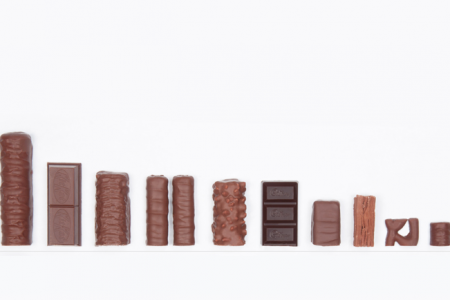
Sahel Crisis
Sahel Nutrition Crisis Climate change It only rains once a year in the Sahel. A drought has sucked the land dry; food is even more scarce than usual; and prices are rapidly becoming too high for most families to afford. Conflict aggravates the crisis and reduces income-generating opportunities. The Sahel nutrition crisis is the result of many overlapping and interconnected factors. UNICEF estimates that over one million children under the age of 5 are at risk of severe malnutrition. The following infographic presents the causes and effects of this Conflict Impact on population UNICEF's response Children under 5 with severe acute malnutrition Rainfall patterns are changing: Increased precipitation, but uneven distribution crisis. Since the start of decolonization, the region has experienced a significant number of conflicts, Emergency assistance is required to meet basic needs and prevent new cases of acute malnutrition. Burkina Faso 99,178 In addition, the proliferation of small weapons and drug trafficking have exacerbated violence in this region. Desertification Cameroon (northern regions) 55,119 Mauritania is the degradation of land in arid areas. 1 million Mali Total population in thousandsn Overgrazing Chad (Sahel belt) 127,300 UNICEF works with governments to provide services for women and children 3,491 Bush fires children at risk under the age of 5 in health centres and in the community. Mali Chad Niger P 16,221 13,802 |175,000 Under-five population in thousands K It occurs because dryland ecosystems are extremely Poor irrigation systems & 0,560 Mauritania | 12,600 6,035 vulnerable to over-exploitation 3,114 and inappropriate land use. Niger 140,252 children under 5 have thus far received lifesaving treatment for severe acute malnutrition 2,701 The insecurity is hampering the delivery of aid to those who remain. Senegal * 1,098 Nigeria (northern regions) 394,000 %3D Desertification is not to be confused with the expansion of existing deserts. 207,718 1,529 Deforestation Senegal (northern regions) Burkina Faso Nigeria | 20,000 Poor quality of surface water Conflict over resources Northern pastoralists have pushed farther south, while southern farmers 0,254 Women and girls are being kid- napped and children are being recruited into armed groups. 16,716 41,038 Arid areas see Iless rain and Ibecome drier Land erosion Conflict destroys resources 3,179 6,833 Water sources dry out Population displaced due to the conflict in Mali Migrant workers have expanded cultivation into lands used primarily by pastoralists. eater competition, tension and violent con- flict between livelihood groups. Cameroon Wet regions receive more rain, resulting in floods Because of conflict and instability in Cote d'Ivoire, Libya and northern Nigeria, migrant workers are returning home. Chad alone saw the return of 90,000 people. As a result, 10,000 families who depended on remittances from working abroad have lost significant income, increasing the vulnerability of communities already suffering from severe drought. Landmines on the ground have already killed several children. 100,000 | 6,897 Mali Internally displaced persons (IDPS) 80,000 321,930 people displaced in the Sahel region 1,148 The number of health 60,000 Southern farmer Refugees (displaced across country borders) Mauritania Nigeria Burkina Faso centres with facilities to 40,000 treat severe acute malnutrition has increased across the Sahel. 20,000 Corn prices are 60 - 85% higher than the average for this time of year (based on the last five years) 26% decrease in cereal production Loss Northern pastoralist 15 Feb 21 Feb 1 Mar 6 Mar S Mar 3,100 facilities 2011 4,150 facilities 2012 $$$ 8 Feb 13 Feb "Before, our relatives work- ing in Libya used to send us money. But they suddenly fled when the situation went bad. So now I have to maintain my children and all those who returned from Libya." 28 Feb Displaced people need: - Food - Water and sanitation facilities - Shelter - Health care - Protection "Maize is so "When Saidi Mohammed - Chad expensive in the the village was market now that we attacked, we left at sunset cannot afford food every day, so with many families in an old truck, sometimes we eat and sometimes we and we spent a horrible night battered by do not. Our farm yielded no harvest this year cold and fear. Twelve hours later we were standing in so we have nowhere else to turn. line at the registration centre in Fassala. Habibi (3-year-old "If the rains fail again this year, I don't know what we will do." "Our living condition has improved since we arrived here. It is a relief to have drinking water close by" Mariam Dianapo - Mali Adama Abdulai - Chad grandson) was already weak with a bad cough and diarrhoea." Aminata - Mali Nanni Oueled Faghi - Mauritania unicef ative for migration Lack of resources generates more 23 Feb 15 Mar
Sahel Crisis
Source
Unknown. Add a sourceCategory
Human RightsGet a Quote










